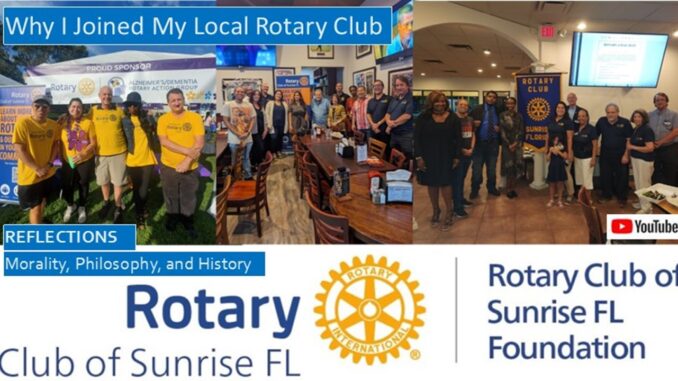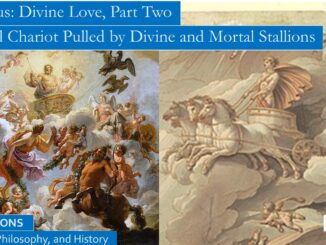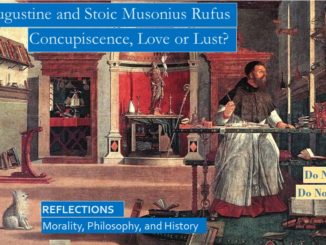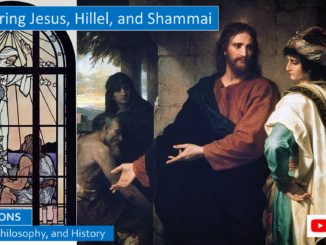
Today we will reflect on both the history and philosophy of the Rotary movement, as well as my personal experience with Rotary.
There are four types of civic groups, fraternal organizations such as the Masonic Lodges, often with elaborate secretive rites closed to the public;[1] secular civic groups such as the Rotary, Kiwanis,[2] and Lions Clubs,[3] which seek to serve the community; business networking groups such as the Chamber of Commerce, where each member promotes their business; and civic groups that have a limited membership base, such as the Catholic Knights of Columbus.[4]
There were Masonic Lodges active before the French Revolution, and in modern times there are numerous rites in existence. Other fraternal organizations such as the Elks[5] and Moose lodges[6] were formed in the late 1800’s, and they often raise money for charitable causes such as the Shriner’s Hospital.[7] The major civic groups, mainly Rotarians, Kiwanis, and Lions, were organized in the early 1900’s and are only secondarily business networking groups. Likewise, the business networking groups may also raise money for charities.
Historically, many Christian denominations were opposed to the Masons and other fraternal organizations,[8] and the modern Catholic Church has never revoked its historical condemnations of these organizations.[9] Individual members of these lodges will vehemently disagree, pointing out that these fraternal organizations strive to be non-denominational. Most pastors and priests will bite their lips and not mention these official stances to their parishioners, seeing their modern incarnations as somewhat harmless. After all, how threatening can elderly men with funny caps toodling about in small motorcycles and tiny cars in parades be?
HISTORY OF ROTARY INTERNATIONAL
The Rotary Clubs, which I recently joined, have no secrets, they are quite open about their philosophy. The first Rotary Club was founded by attorney Paul Harris and three business associates, each with a different occupation, in Chicago, Illinois. Since they initially rotated the meetings among the offices of the members, they named it Rotary, but they quickly established a fixed meeting place, and very early became a service-oriented organization.
By 1910, there were Rotary Clubs in San Francisco, Oakland, Seattle, and Los Angeles. In late 1910 they founded their first international club in Winnipeg, Manitoba, in Canada. In 1912 they founded clubs in Ireland and London, and in 1922 they changed their name to Rotary International after founding clubs in Cuba, the Philippines, and India. The Rotary movement grew both nationally and internationally, and many Rotarians were active in the founding of the United Nations after the end of World War II. Today there are Rotary Clubs in most countries, except for many Middle Eastern Muslim countries. In the 1980’s women became eligible to join. Today there are over 46,000 Rotary Clubs worldwide, with about one and a half million members.[10]
ROTARY FOUR WAY TEST
Since my concern is how to live a godly life rather than a happy life, my interest is more on the ethics of Rotary, and how it can help me achieve my primary goal in life, to make a difference, however small, in my community.
Early in its history, the Rotary Clubs adopted the Four Way Test. The Rotary website states that “the Four-Way Test is a nonpartisan and nonsectarian ethical guide for Rotarians to use for their personal and professional relationships.
Of the things we think, say, or do:
- Is it the TRUTH?
- Is it FAIR to all concerned?
- Will it build GOODWILL and BETTER FRIENDSHIPS?
- Will it be BENEFICIAL to all concerned?”
The Four Way Test is a restatement of the Golden Rule that is the core teaching of all Judeo-Christian traditions, with an emphasis on developing fellowship with fellow Rotarians. One example is when an enquirer challenged Rabbi Hillel: “Convert me to Judaism on condition that you will teach me the entire Torah while I stand on one foot.”
Hillel said to him, “That which is hateful unto you, do not do unto your neighbor. This is the whole Torah; all the rest is commentary. Now, go and study.”[11]
Hillel and Jesus, Reflections on Rabbi Telushkin’s Observations
http://www.seekingvirtueandwisdom.com/hillel-and-jesus-reflections/
Comparing Hillel and Shammai to Jesus
http://www.seekingvirtueandwisdom.com/comparing-hillel-and-shammai-to-jesus/
More Stories and Sayings of Hillel and Shammai
http://www.seekingvirtueandwisdom.com/more-stories-and-sayings-of-hillel-and-shammai/
Jesus, Hillel, and Shammai, Loving God and Neighbor
https://youtu.be/ygxn2qqGnOI
Likewise, Jesus quoted from Deuteronomy the core of the Judeo-Christian tradition, that “Love God with all of our heart and with all of your soul and with all of your mind and all of your strength, and that you should love your neighbor as yourself.” That summarizes the teachings of the Law and the Prophets.
Loving God in Deuteronomy, My Gentile’s Defense of Judaism, Part 2
https://seekingvirtueandwisdom.com/loving-god-in-deuteronomy-and-a-gentiles-defense-of-judaism-part-2/
https://youtu.be/1f-rAs-rBI0
You might object that since Rotary is a strictly secular organization, this would not apply if you do not ascribe to the Judeo-Christian tradition. If so, you can instead love the good, the Platonic notion that truth is not subjective, that there is an objective truth that applies to all humans, or the Natural Law of the modern philosophers. Virtue is not relative.
Summary of Platonic Dialogues on Love and Friendship, With Commentary by Copleston and Anders Nygren
https://seekingvirtueandwisdom.com/summary-of-platonic-dialogues-on-love-and-friendship/
https://youtu.be/cjXRXQc6Ff4
St Augustine applies this two-fold Love of God, or love of the good, and love of your neighbor, to Biblical interpretation. Our saint teaches us that all Scripture must be interpreted in light of this two-fold love, and when the literal reading of the Scriptures appears to violate this two-fold love, then it should be interpreted allegorically. This principle can be extended to our relations to our neighbors, that we should think the best of our neighbor, so we can bring out the best in our neighbor, and that everything we think, say, or do should be beneficial to all concerned.
St Augustine: On Christian Teaching, aka On Christian Doctrine, How To Read Scripture
http://www.seekingvirtueandwisdom.com/st-augustine-on-christian-teaching-how-to-read-scripture/
https://youtu.be/uQCnAJMPoos
This same pattern is seen in the Decalogue, where what we think of our neighbor affects our speech and actions, and where our speech also affects our actions. Note that the Four Way Test bids us to speak the truth, and only say what is beneficial to our neighbor. Note that it does not say we should not lie, as the commandment reads not that we should not lie, but that we should not bear false witness against our neighbor, that we should guard the reputation of our neighbor. This means that we should not gossip about our neighbor, and even if what we say about our neighbor is true, it is not beneficial if it harms the reputation of our neighbor.
Do Not Slander, Church Fathers, Preachers, and Catholic Catechism, CCC 2464
http://www.seekingvirtueandwisdom.com/do-not-slander-church-fathers-and-preachers-and-catholic-catechism-introduction-ccc-2464/
https://youtu.be/CZADtl6Yz74
Decalogue: Do Not Slander, Catholic Catechism 2465-2503, and St Thomas Aquinas
https://seekingvirtueandwisdom.com/decalogue-do-not-slander-catholic-catechism-2465-2503-and-st-thomas-aquinas/
https://youtu.be/9RqsWvRZpWw
Martin Luther, Do Not Slander, Lutheran Catechisms
https://seekingvirtueandwisdom.com/luther-on-do-not-bear-false-witness-against-your-neighbor/
https://youtu.be/jM2FrvyKsbk
The Decalogue in the Torah, Blog 6, Do Not Bear False Witness Against Your Neighbor
http://www.seekingvirtueandwisdom.com/the-decalogue-in-the-torah-blog-6-do-not-bear-false-witness-against-your-neighbor/
Do Not SLANDER: Teachings from the Medieval Rabbis, Rashi, Rambam, Ramban, the Torah and Talmud
Do Not Slander: Dr Laura and Her Rabbi Stewart Vogel on Ten Commandments
http://www.seekingvirtueandwisdom.com/dr-laura-and-her-rabbi-on-not-bearing-false-witness-against-your-neighbor/
https://youtu.be/tlTymS2Bxxo
OBJECT OF ROTARY INTERNATIONAL
The Rotary website states that “the Object of Rotary is to encourage and foster the ideal of service as a basis of worthy enterprise and, in particular, to encourage and foster:
- FIRST: The development of acquaintance as an opportunity for service.
- SECOND: High ethical standards in business and professions; the recognition of the worthiness of all useful occupations; and the dignifying of each Rotarian’s occupation as an opportunity to serve society.
- THIRD: The application of the ideal of service in each Rotarian’s personal, business, and community life.
- FOURTH: The advancement of international understanding, goodwill, and peace through a world fellowship of business and professional persons united in the ideal of service.”
Historically, Rotary Clubs have striven to have a balance of occupations in their membership. Also, we have seen in the recent political struggles how the first allegiance of professionals like attorneys are more loyal to their profession than to their employers, since the bar association can revoke their privilege to practice law, and we see this from the local courts to the Supreme Court. This is also true of many professions, accounting in particular. Rotary attempts to spread this ethos of responsible behavior across all professions.
There is a heavy emphasis on the international efforts of Rotary, one project is to totally eliminate polio from the face of the earth. Last year there were only a dozen or so cases around Afghanistan, they even convinced the Taliban to permit them to inoculate remote villages against this disease that ravished so many a century ago.
MY EXPERIENCE WITH ROTARY
Recently I attended the first phase of the Rotary Leadership Institute held on a Saturday in Fort Lauderdale, Florida, and have visited many of the larger clubs in my Area. The Rotarians strive to be diverse, and women make up roughly half of the membership and leadership of the clubs in my area, and there is substantial participation by minorities.
Most attendees were over forty, but there were some younger members. Younger people are welcome, one of our younger participants belonged to her high school Interact Club, which is sponsored by a local Rotary Chapter. If you want to live a godly life, if you want to not only love your neighbor but want to help your neighbor, Rotary is an excellent opportunity to serve the community, and your church can partner with Rotary on these community projects. There are many larger clubs and smaller clubs, and if they meet at a country club, they likely have some more prosperous members.
At one meeting I was visiting I was sitting next to an investment advisor in an established family firm, he said he joined Rotary because he was not interested in joining another business networking club, he wanted to join a club that gave back to the community. Members of Rotary Clubs not only give alms to charities, but they also donate time and service, getting involved with the community. If you do not think this is true with your local Rotary Clubs, then you can join Rotary yourself and make it more true.
Fellowship is a big part of Rotary, just as it is with churches, and the larger cities have multiple chapters, you can visit many chapters to find one that is welcoming. But people are people wherever you go, and Rotary people are no exception, so whatever acquaintances you form in this world, you should simply strive for everyone you meet to become slightly better people because they met you, and that you bring out the best in most everyone you meet. Rotary is very receptive to this compassionate ethos.
MY STORY: WHY I JOINED ROTARY INTERNATIONAL
In Rotary, you are encouraged to tell your compelling story of why you joined Rotary. This is my story: I had a traumatic experience when serving as an officer for an over-55 condominium association, we were threatening foreclosure on a problem owner who had been in and out of collections for about a decade. His neighbor warned us that we should reconsider, that there was not something right upstairs with this fellow. We went ahead with the foreclosure; he was also harassing the office staff and many of his neighbors complained about his demented behavior.
How I Halted a Foreclosure on a Destitute Owner with Advanced Dementia! We Discuss Dementia
https://seekingvirtueandwisdom.com/how-i-halted-foreclosure-on-owner-with-advanced-dementia-reflecting-on-dementia/
https://youtu.be/_uAJPCCRNQ8
I visited him with a good-hearted lady who ran a guardianship service, and he was totally out of touch with reality, he had no conception of his impending foreclosure, he was relying on his neighbors to feed him, and he had no family. I called the attorney and stopped the foreclosure so the court could appoint his wonderful lady as his guardian, she placed him in a compassionate facility, and sold his condominium to pay his debts.
My fellow board members were pissed. Six months passed, and they censured me, demanded that I resign, and had the attorney mail a letter to all unit owners saying how I was not a team player, how I was somehow endangering the association. I responded by spending several thousand dollars for my own mailing, printing in red letters on the front of the envelope that I was being censured for stopping the foreclosure of a destitute owner with advanced dementia who had no family and nowhere to go.
This could have happened in any of our over-55 communities, people just do not know how to treat those who are suffering from dementia, and about fifteen percent of them do not have family to take care of them. The notion that we are responsible for our actions lies at the core of our religious beliefs and our society, and the uncomfortable truth is that dementia robs its sufferers of their memory, their reasoning, and their moral compass. The police are becoming more aware of how they should respond to those suffering from dementia, and how to respond to them, so be quick to call the police. Above all, if someone over sixty is behaving strangely, even if they have a history of odd behavior, they may have dementia, in the very early stages it can be difficult to diagnose.
How Do We Treat our Neighbors Who Suffer From Dementia? Guidance for Over-55 Condos
https://seekingvirtueandwisdom.com/how-do-we-treat-our-neighbors-who-suffer-from-dementia-also-guidance-for-over-55-condos/
https://youtu.be/zwQK3VgaNOo
Wellness Checks for Dementia: Police and Mental Illness
https://seekingvirtueandwisdom.com/wellness-checks-for-dementia-police-and-mental-illness/
https://youtu.be/z_SlPLARCxU
My goal is to educate the public on how we should treat our elderly and those with dementia with more compassion. I first organized a seminar on my own, but it had very low attendance, and was not a success. Then after joining Rotary, we organized another community seminar, and with the support of fellow Rotarians, it was more of a success, and next year’s seminar will be a greater success.
Glen Campbell Suffering from Alzheimer’s, Early Signs and Symptoms
https://seekingvirtueandwisdom.com/glen-campbell-suffering-from-alzheimers-early-signs-and-symptoms/
https://youtu.be/F9NmDiiPowI
The Alzheimer’s Association is a sponsored charity for our Rotary Club and also Rotary International. Locally they have monthly zoom meetings where they discuss the progress on battling dementia.
Some Rotary Clubs meet twice a month, some meet weekly, and at each meeting they ask someone in the community to inform us about their cause. We spoke before several of the larger clubs about our Aging Seminar, and we had some participation. But this also means that each club has between 24 and 52 speakers each year, so perhaps we will need to speak before each club several times to be noticed by each member.
Aging Gracefully Seminar, Dementia; Elderly Programs & Services in Broward County, FL Rotary 4/2024
https://youtu.be/TCm4BYWrs8U
Aging Gracefully Seminar, Deed Fraud, Legal Challenges Facing Seniors, FL Rotary 4/2024
https://youtu.be/Nd1EQV0Yfkc
Many Rotarians join Rotary for the fellowship, and that is okay, because Rotary is beneficial fellowship, but since I have never been very good at drinking beer, I joined Rotary for the service.
Another Rotary tradition of many clubs is happy dollars, or happy five dollars, where the money is earmarked for charity. These are happy dollars because you are encouraged to share your own Rotary moment, or happy thought, so I say I am happy because of a saying I have read from a favorite Stoic philosopher, like Epictetus, or Rufus, or Seneca, or Marcus Aurelius. Most aware that Judaism is the primary influence of the early Christian tradition, but not as many are aware that an important secondary influence is Stoicism. This is a good fit, just as Rotary is evangelical about living a godly life, so is Stoicism. These stoic sayings sound Christian, but they are secular. And many of the medieval Jewish rabbis have many aphorisms as well.
Major Roman Stoic Philosophers, My Favorite Maxims: Epictetus, Rufus, Seneca & Marcus Aurelius
https://seekingvirtueandwisdom.com/major-roman-stoic-philosophers-my-favorite-maxims-epictetus-rufus-seneca-marcus-aurelius/
https://youtu.be/E0qQgqGkoOE
Greek Stoic and Cynic Philosophers: My Favorite Maxims: Heraclitus, Antisthenes, Diogenes, and Zeno
https://seekingvirtueandwisdom.com/greek-stoic-and-cynic-philosophers-my-favorite-sayings/
https://youtu.be/rq3oRftjM4c
How can ordinary people make a difference? Quite often they can, I take inspiration from the ordinary people who helped defeat Nazism in World War II, in particular the freelance spy Agent Garbo, who was an ordinary Spaniard who worked on a farm who eventually fooled Hitler into committing troops and tanks to Calais, ensuring the success of the landings on Normandy Beach on D-Day.
Double Agent Garbo: The Ordinary Person Who Played a Major Role in Defeating Nazi
https://seekingvirtueandwisdom.com/double-agent-garbo-the-ordinary-person-who-played-a-major-role-in-defeating-nazi/
https://youtu.be/-ccnaGxrAWA
ROTARIAN CODE OF CONDUCT
There are two versions of the Rotarian Code of Conduct, which emphasize that the Four Way Tests are rules for living. We might ask: Are there Rotarians who try to replace religion with Rotarian ethics? Perhaps there are, but perhaps if Rotarians take these rules to heart, Jesus will speak to their heart saying what he said to Cornelius: “Your prayers and your almsgiving have ascended as a memorial before God.”[12]
This is the five-point version of the Rotarian Code of Conduct: “As a Rotarian, I will:
- Act with integrity and high ethical standards in my personal and professional life.
- Deal fairly with others and treat them and their occupations with respect.
- Use my professional skills through Rotary to mentor young people, help those with special needs, and improve people’s quality of life in my community and in the world.
- Avoid behavior that reflects adversely on Rotary or other Rotarians.
- Help maintain a harassment-free environment in Rotary meetings, events, and activities; report any suspected harassment; and help ensure non-retaliation to those individuals that report harassment.”
The eight-point Rotary Code of Conduct was formerly known as the Declaration of Rotarians in Businesses and Professions. The last point is an addition:
“Not seek from a fellow Rotarian a privilege or advantage not normally accorded others in a business or professional relationship.”
We should also treat all those whom we meet with dignity and respect: “Be fair in all dealings with others and treat them with the respect due to them as fellow human beings.”
“As a Rotarian, I will
- Exemplify the core value of integrity in all behaviors and activities.
- Use my vocational experience and talents to serve in Rotary.
- Conduct all of my personal, business, and professional affairs ethically, while encouraging and fostering high ethical standards as an example to others.
- Be fair in all dealings with others and treat them with the respect due to them as fellow human beings.
- Promote recognition and respect for all occupations which are useful to society.
- Offer my vocational talents: to provide opportunities for young people, to work for the relief of the special needs of others, and to improve the quality of life in my community.
- Honor the trust that Rotary and fellow Rotarians provide and not do anything that will bring disfavor or reflect adversely on Rotary or fellow Rotarians.
- Not seek from a fellow Rotarian a privilege or advantage not normally accorded others in a business or professional relationship.”
The Avenues of Service also encourage Rotarians to first live a godly and ethical life, and involve ourselves with the community, and with the youth of our community. To learn more about the international efforts of Rotary, please visit their website.
“We channel our commitment to service at home and abroad through five Avenues of Service, which are the foundation of club activity.
- Club Service focuses on making clubs strong. A thriving club is anchored by strong relationships and an active membership development plan.
- Vocational Service calls on every Rotarian to work with integrity and contribute their expertise to the problems and needs of society. Learn more in An Introduction to Vocational Service and the Code of Conduct.
- Community Service encourages every Rotarian to find ways to improve the quality of life for people in their communities and to serve the public interest. Learn more in Communities in Action: A Guide to Effective Projects.
- International Service exemplifies our global reach in promoting peace and understanding. We support this service avenue by sponsoring or volunteering on international projects, seeking partners abroad, and more.
- Youth Service recognizes the importance of empowering youth and young professionals through leadership development programs such as Interact, Rotary Youth Leadership Awards, and Rotary Youth Exchange.”[13]
To sum up the ethos of Rotary, Rotary is an opportunity to give back to the community, sometimes you will be recognized, sometimes not. Whether your business will prosper because you join Rotary, not so much, that is not the goal of Rotary, though the connections you make with fellow Rotarians may eventually prove valuable increasing your earthly treasures as well as your heavenly treasures.
Since this is my story about my experiences with Rotary, I choose to close this with my favorite country song: You don’t Love God if you don’t love your neighbor.
[1] https://en.wikipedia.org/wiki/Freemasonry
[2] https://en.wikipedia.org/wiki/Kiwanis
[3] https://en.wikipedia.org/wiki/Lions_Clubs_International
[4] https://en.wikipedia.org/wiki/Knights_of_Columbus
[5] https://en.wikipedia.org/wiki/Benevolent_and_Protective_Order_of_Elks
[6] https://en.wikipedia.org/wiki/Loyal_Order_of_Moose
[7] https://en.wikipedia.org/wiki/Shriners_Hospitals_for_Children
[8] https://en.wikipedia.org/wiki/Christian_attitudes_towards_Freemasonry
[9] https://en.wikipedia.org/wiki/Papal_ban_of_Freemasonry
[10] https://en.wikipedia.org/wiki/Rotary_International and https://www.rotary.org/en
[11] Joseph Telushkin, “Hillel, If Not Now, When?,” (New York: Schocken Books of Random House, 2010) p. 19, from Shabbat 31a.
[12] https://www.biblegateway.com/passage/?search=acts+10&version=RSVCE
[13] https://en.wikipedia.org/wiki/Rotary_International and https://www.rotary.org/en and Rotary Leadership Institute, Sunshine Division, Part I, the Rotarian, 2023




Be the first to comment